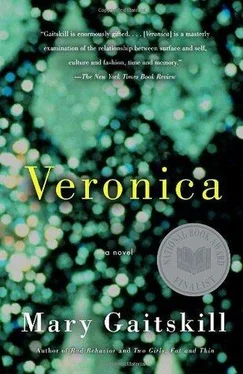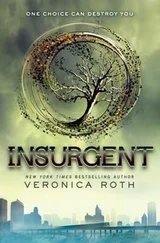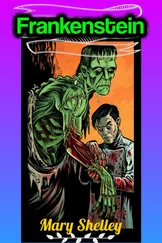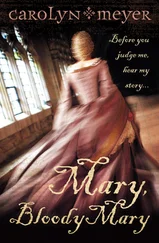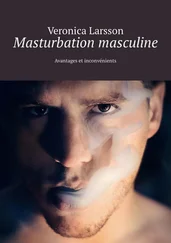I stare at the clay dirt before me. I think of the great teeth; the lion cub torn to pieces in the adult’s embrace. I imagine the methodical grind of digestion and blood. I imagine a moving black coil with white shapes inside it disintegrating in a grind of dirt, roots, and bones. I look up. Before me is a small tree with delicate orangy skin, its limbs, with dull sparse clusters of leaves and buds, arrayed like static flame. It plants its roots in the bones and the dirt and it drinks. I think of my sister’s bit of flesh, red with triumph, and my mother’s joyous head. I think of Veronica leaping into complete embrace, her love requited now forever.
After the memorial, I visited my family. While my mother and Sara were out, I asked my father to play Rigoletto for me. I told him I had a friend who loved a particular aria and that I’d like to hear it. “It’s a love song,” I explained.
My father was happy to play it for me. I rarely spent time alone with him, and I even more rarely showed any interest in the things he loved. I wasn’t really showing interest now. I didn’t want to hear his Rigoletto . I wanted to hear Veronica’s Rigoletto , and it didn’t seem possible to hear both. If my father had met Veronica, he would’ve liked her. But he would not have wanted to meet her. She had loved a bisexual and thus had done wrong. It wouldn’t matter to him that she’d loved the music he loved, that she might’ve understood his sentimental passions in ways that I could not.
With self-righteousness and also a wish that he might know me, I talked to my father about Veronica. I could tell immediately that he didn’t want to hear what I said but that, because he respected death, he would suffer it. This made me all the more determined to make him hear me. I told him of Veronica’s loneliness, her idiosyncrasy, her love of order. I told him how kind she had been to Sara. I told him that Veronica, too, had despised the way people used words like choices . “It’s terrible for anybody to get a disease like AIDS,” I said. “But it seemed even worse for her. Because she tried so hard to be proper and dignified. She didn’t want to be phony; she didn’t want pity. She wound up being and getting what she didn’t want. But at least she fought.”
My father’s face had the retracted look of a threatened animal — tense around the jaw, ready to bite. But he nodded to let me know he was listening.
I told him about sitting in the café with Veronica, listening to the aria from Rigoletto . “The sad thing is, I think she was telling me the truth. I think there probably was love between her and Duncan. But it got put together with a lot of other horrible stuff that both of them couldn’t stop doing to themselves. So the love didn’t help them. That’s sadder to me than if they didn’t love each other.”
He didn’t answer. Loud voices leapt up in declarative oblongs, then divided into fine, vibrant strands of delicacy and strife; father and daughter sang against each other. But my father didn’t answer me. He didn’t look at me. He said, “Now Rigoletto is talking to Gilda, his daughter. He’s warning her not to leave the house. He says, ‘It would be a good joke to dishonor the daughter of a jester.’ ”
He said this last phrase with relish, as if the idea of a daughter’s honor was like a precious jewel to him, a jewel the world no longer valued (not even his own daughter!), and now here it was, celebrated and jealously guarded in Rigoletto . The idea of a daughter’s honor, I thought bitterly, not the reality. In reality, he didn’t honor me enough to answer what I’d said to him. I thought of telling him more, of forcing him to respond. But how could I insist that he face what I had failed to face?
“Now here’s the love duet,” he said. “The Duke has come to woo Gilda, only she doesn’t know who he is.”
I listened to see if this was the music I had heard in the café. I didn’t recognize it. I imagined a vessel of fluted glass falling through the air, landing, and shattering. I had just said that there was love between Veronica and Duncan. But how could I believe Duncan had loved her, when he had been so careless with her life and his? How could I believe she even knew what love was? My thoughts faltered and will-lessly followed the music. No. People who loved each other would never treat each other, or allow themselves to be treated, with such indifference and cruelty. But even as I thought this, I felt, rising from under thought, the stubborn assertion of love living inside their disregard like a ghost, unable to make itself manifest, yet still felt, like emotion from a dream.
“Now Rigoletto’s back,” said my father. “And Gilda’s gone! He cries out, ‘Gilda! Gilda!’ ”
The words cracked his voice as they burst from his lips, more fierce and dramatic than the voice of the singer. The music rose in a great fist. He said it again, more quietly this time. “ ‘Gilda! Gilda!’ ” I stared at him, shocked. His voice was full of emotion, but his face was rigid, his eyes glassy.
When I got back to L.A., I went for a job the next day. John drove me to it, hectoring me about learning to drive. In his voice I heard my father crying out. He laid on the horn and braked as a big white car cut us off, its rear end wagging. A blond child with a blurred face clutched a soft toy and waved at us out the back window. “Son of a bitch!” yelled John. We got slammed from behind and thrown forward. I grabbed the dashboard hard with one hand. John swerved the wrong way and sideswiped a white blur. Crashing and grinding rose in a great fist. Veronica came at me with razor teeth. I screamed. We swerved again and went off the road.
I came to strapped on a gurney in a white corridor of pain and intercom noise. My first thought was, I have AIDS. Then I remembered. A nurse came to check my vitals. “Is my face all right?” I whimpered. “Just bruised,” she replied, and said they’d take me for X-rays soon. People moaned. People ran up and down the hall. I could not move my head enough to see them; there were only upside-down white backs flapping away. Five hours later, I was fighting with a technician who insisted on taking out my earrings before she did the X-ray. She yanked them out so hard, I thought she’d tear my ears.
“If you fuck up my ears, I swear I’ll sue you,” I said. “I’m a model and I can’t have fucked-up ears!”
“Why not?” she asked. “You got a fucked-up head.”
I had a broken wrist, a torn rotator cuff, and whiplash. Because I didn’t have insurance, they let me go that night with a neck brace and a sling for my arm. They told me to wear the sling for three weeks or my rotator cuff wouldn’t heal properly. But I was frantic for money. I persuaded a doctor to take my wrist out of the cast early, then took a hundred-dollar taxi ride to audition without the sling or the brace. Even the tryout hurt like hell. I got the job but broke down with pain in the middle of it. When I told them why, they felt bad for me, but they had to let me go anyway. I got paid for the whole thing. But my neck and arm were never right after that.
John had a concussion, a broken ankle, and two broken ribs. He had insurance, so they kept him longer. When I went to visit him, he said, “See? Didn’t I tell you? You have to learn how to drive!”
Going back down the mountain, I see some bushes I didn’t notice on the way up, even though they grow thick all along the edge of the path. They have twisted little trunks and limbs, dark red and wryly formed. I think of the devil sticking out his tongue of snakes; I think of Robert Mapplethorpe, triumphant, with a whip up his ass; I think of Veronica crying, “They’re taking it all away.” I hadn’t understood her then. But I do now. They did take it away. Veronica’s world is gone, campaigned against by people like my father, who saw his world taken away from him by people like her — I understand that now, too.
Читать дальше
